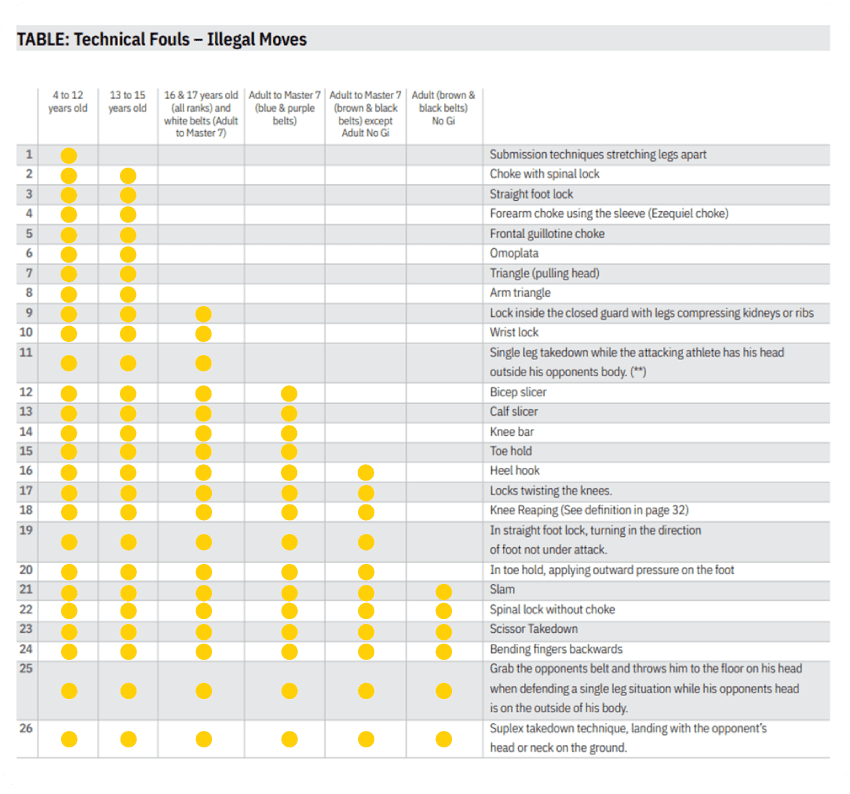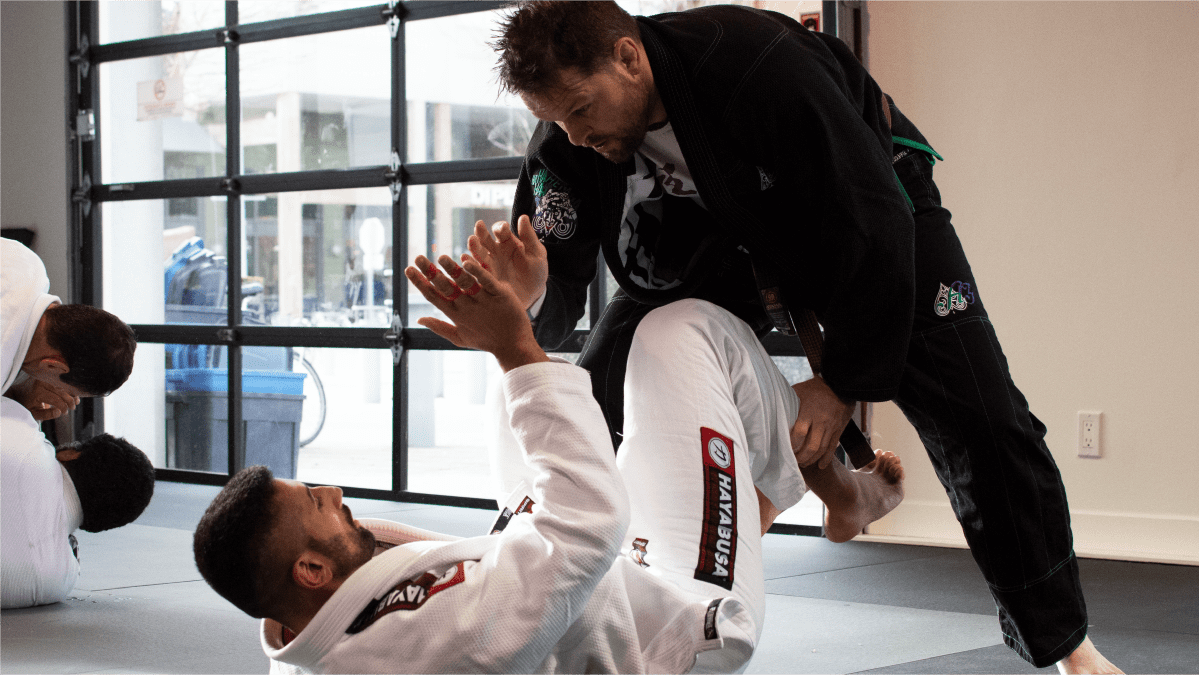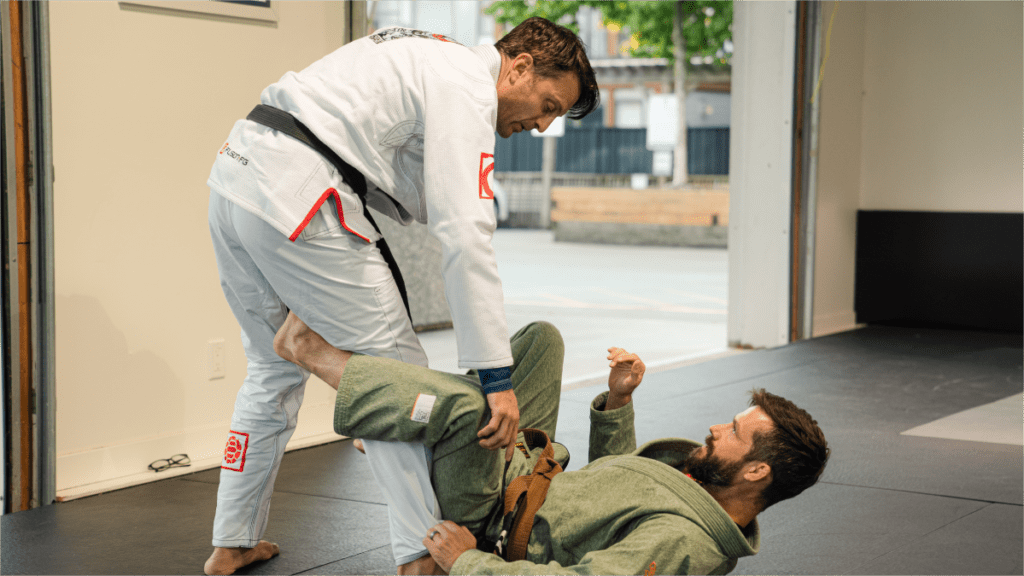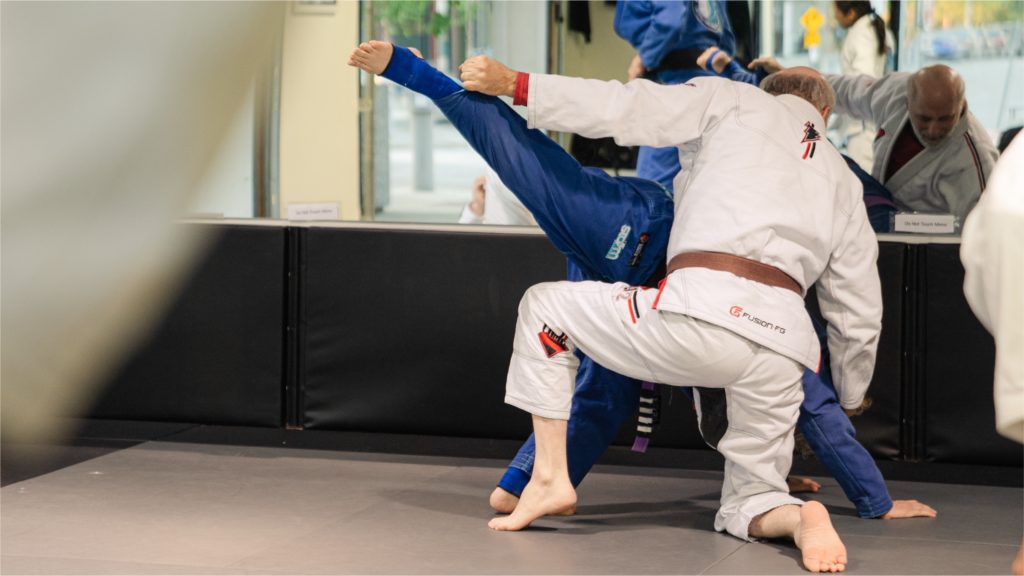When you start a new sport or exercise regime for the first time, it can seem daunting. Right? So many new practices and experiences to get familiar with! With that said, we’ve laid out a quick list on the top 8 tips that you just should know for your first few classes to keep you feeling confident on the mat.
The 8 Top Tips:
1) What moves are illegal?
When sparring jiu jitsu the objective is to make your opponent submit. You can achieve this goal with a variety of techniques which are legal in competition. Here is a chart of the technical fouls depending on age and skill level used by the IBJJF (International Brazilian Jiu-Jitsu Federation):

It should be noted that the following are also illegal moves and should not be practiced at the gym.
- Biting – This should hopefully be self explanatory.
- Suplex Takedowns – These techniques can case back pain, and could potentially be paralyzing.
- Slams – Similar to suplex takedown, we are trying to limit injury. Most competitions deem this an illegal moves resulting in an immediate disqualification.
- Backwards Finger Bending – This is considered a small joint manipulation and is not allowed at all. The Ibjjf and even MMA organizations have declared it illegal at all levels.
- Heel hooks, scissor takedowns or knee reaping – These moves are banned if you are practicing gi. No gi athlete’s above purple belt are allowed to train these with control – At the higher levels heel hooks are essential to understand and practice. We are happy to show beginners the mechanics of the position, but feel it is safer to have an more experienced practitioner apply these in live sparring as it requires an increased ability of control to prevent injury.
2) Be aware of your surroundings
Sparring is an important tool we use to practice real world application of skills. It is also a TON of fun. It is very easy to be totally consumed with only your partner during this activity. It is important to share the mat space with everyone else. If you find that you and another pair are suddenly close to one another, please stop the round and move to an area where there is enough space. The idea is to prevent accidental collisions which could cause an unwanted injury.
3) Tap early, Tap often
During sparring you will be put into submissions and it is important to tap early. If you are unsure of a position, or are in serious discomfort tap immediately. This can be done in several ways. You can verbally tap by saying “TAP!” loud enough to ensure your partner hears you. This is a good idea if your hands are tied up. You can also tap with either your arms or feet by tapping on the mat or your partner firmly. One thing I have seen beginners do is tap on themselves which is not an indication to your partner and can be dangerous. Make your intentions clear to avoid injury. Please do not rely on flexibility to avoid tapping. This is just training, and by tapping you are saying ” You caught me, good work, let’s try this again.” Any time you tap you have an opportunity to learn from the mistakes you made. This is a great time to note the mistake and talk about it with your instructor.
4) Rolling with smaller people
Weight and strength matter. Having excellent technique can help overcome these attributes, but it is important if you are much stronger or heavier than your opponent to try and match their weight and strength. This is an opportunity to test your technique and make friends rather than upset people and stifle progress. This is an excellent opportunity to experiment if you have a significant size or strength advantage.
5) Dial it back
There is a stigma that white belts are “spazzy”. Typically anyone new to the sport is nervous when introduced to sparring and it triggers a fight or flight response to use as much power as possible. Often the technique is not longer considered and the chance of injury increases. If you make a conscious decision to work on your technique and accept the fact you will make mistakes and tap often, you are on a faster path to improvement. Practice makes progress and that is what we are here to do.
6) Communicate injuries
If you have a injured knee, back or something else, it is important to let your training partner know. Sparring can be adjusted to work on something specific to avoid a particular injury. It is up to you to communicate this to your instructor and training partner to come up with a plan to continue to progress in a safe manner should you have an injury.
7) You can say “NO” to rolling with someone
If there is someone who you feel uncomfortable rolling with for whatever reason, please say “No thanks” if asked to roll. If there is too much of a size difference, or you have rolled with them before and felt they were too intense it is always an option to say “No Thanks”. Also, please inform the instructor if there are any concerns about a certain individual privately. We want everyone to feel comfortable and address any issues of concern professionally and immediately.
8) Come to class fresh and clean
A checklist to consider before coming to class
- Come to class in a properly washed and dried gi
- If No Gi, come to class in properly washed, shorts, spats and or shorts.
- Trim your nails
- Freshen breath before coming to class
- Wear deodorant
- Don’t roll when sick
- Tie your hair back if long
- Remove jewelry
- Use the provided slippers when using the bathroom
- Take a shower after class
Get Started with Jiu Jitsu
If you’re looking to get into Jiu Jitsu, or you’d like to come try out a class, we’d love to have you! Check out our what to expect page, and book your first class FREE!




